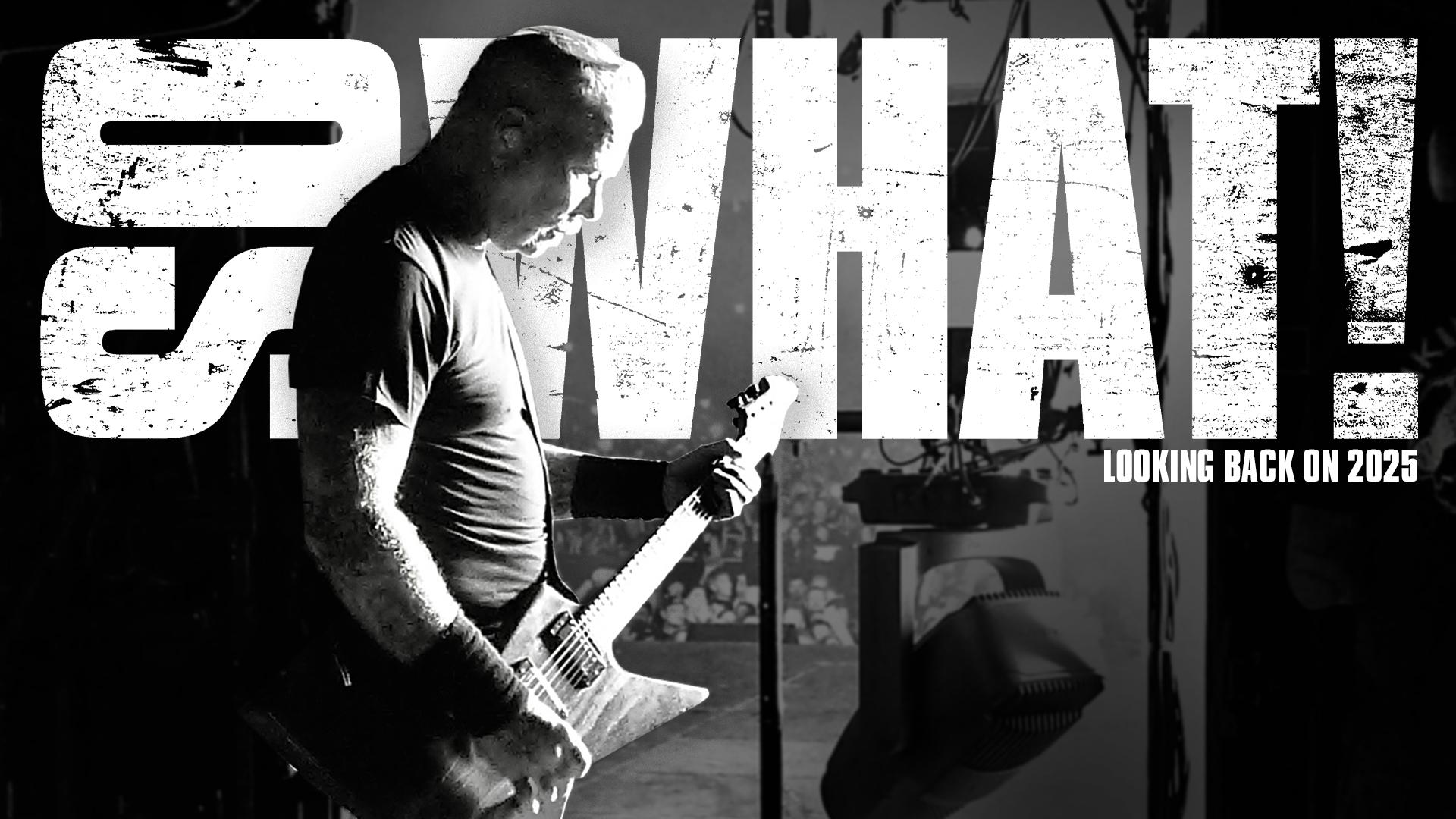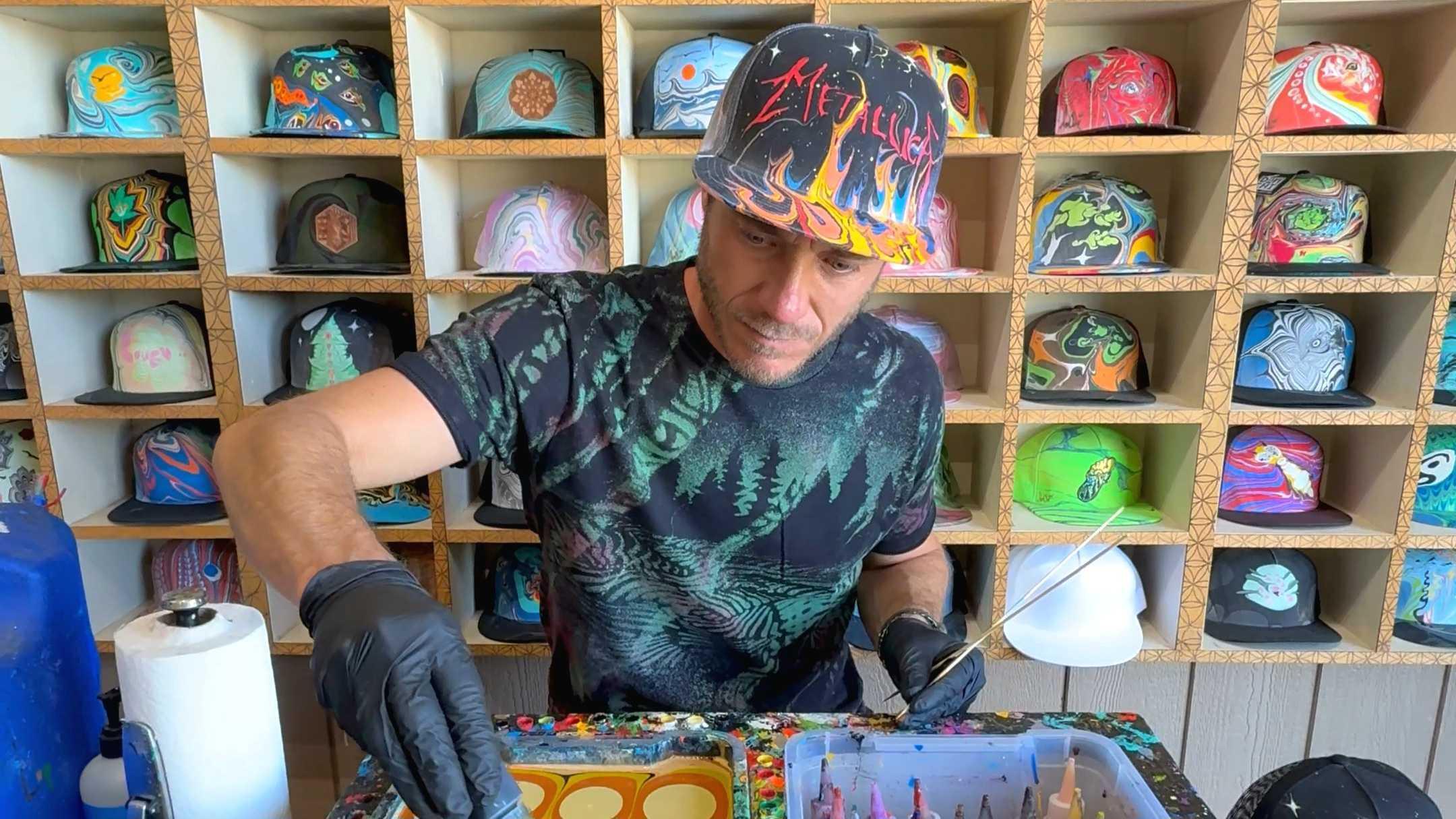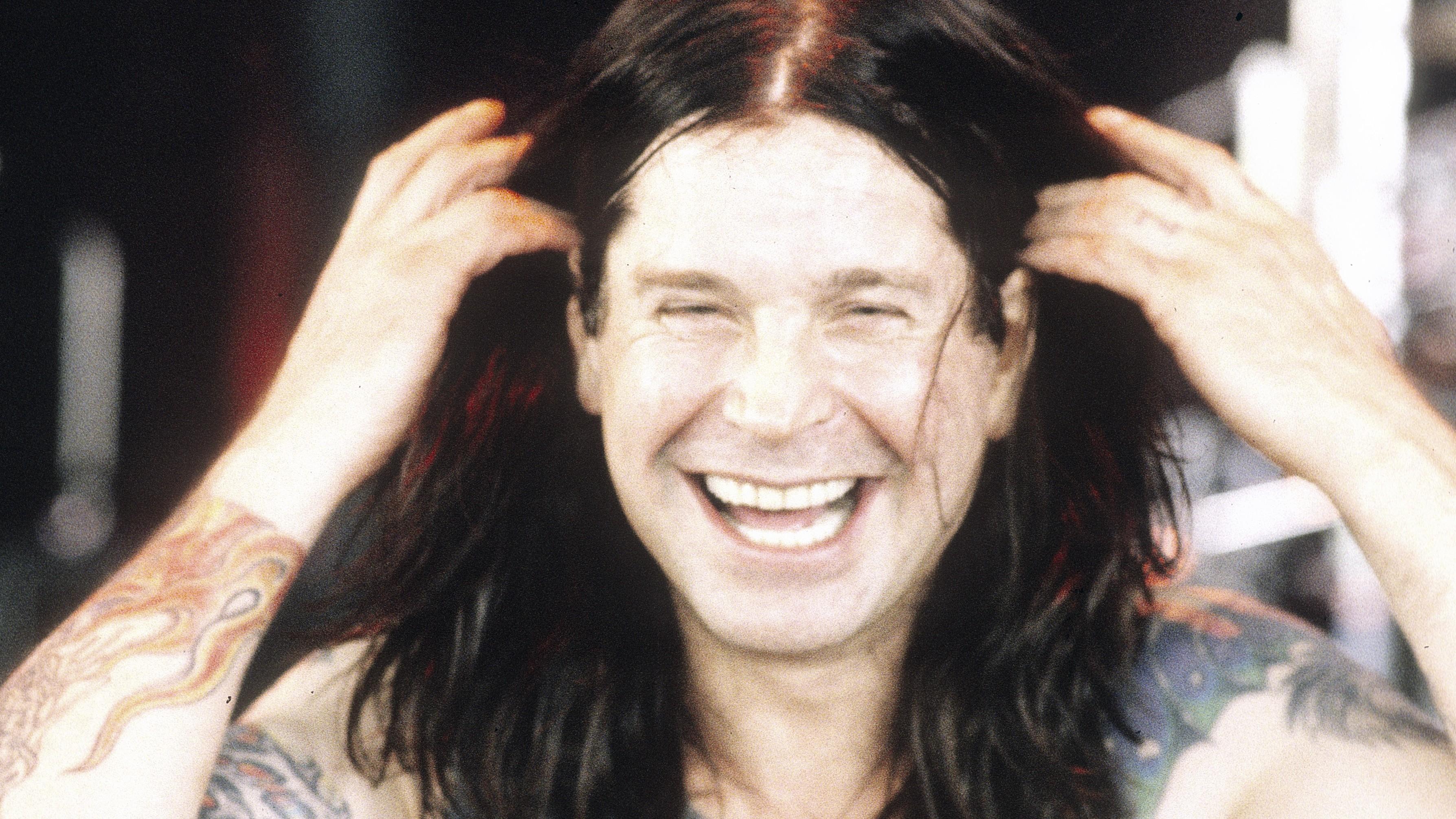
Looking Back on 2025
Some words and photos to look back on the year that was from So What! Editor Steffan Chirazi.
Jun 14, 2022
Taipei Houston demands your attention. You’ll be grateful you gave it.
If you listen to Taipei Houston with zero knowledge of who the band is, you hear a formidable cache of sound. A behemoth stacked tall with high-wire guitars, perhaps a “rhythm” and “lead” pair of bassists, and two magnificent percussionists who both seem to have an infinity-well of raw energy. It is certainly the sound of frustrated, intelligent youth, and it is a sound which throws its fishhooks deep into the skin and tugs forcefully, stretching you to the point of bleeding without ever fully causing grievous bodily harm. Genre-less and packed with smart “Fuck you,” Taipei Houston is the band you hoped the populist pandemic-era world might produce but feared it didn’t have the balls to.
The only fib (aka “light lie”) I’ve told is in the numbers, because while Taipei Houston is, by definition, a band, they are actually simply a duo. Two men, brothers, in fact. Myles and Layne, or Layne and Myles, you choose the order; it doesn’t matter. What does matter is that you know this duo is not Godley & Creme, Hall & Oates, or Simon & Garfunkel. They’re a bit angrier and edgier than that. Yes, Myles and Layne Ulrich are deeply thoughtful and violently passionate brothers in arms who used the arrival of the global pandemic to merge and create.
“Layne and me ended up in New York going to school, and that was the first time in a while we’d lived in the same city,” explains Myles. “We started playing together a bit, but it didn’t really materialize into anything. Then, when the pandemic hit, and we were back in California quarantined in the house together with a setup in the basement, it was like, ‘Now we gotta do this thing.’”
“We were at my dad’s house, like, for the majority of that,” furthers Layne. “That’s when it started to materialize more, and Myles started playing a lot of guitar during that period and writing a lot. He does all the guitar in the songs. So it was a whole year of trying to develop as quickly as possible. I had never sung before, never put vocals on songs, so getting it all right, beginning to end, was a long process.”
As you might be already gauging, lockdown turned out to be a very, very important factor in the creation of Taipei Houston (the name comes from looking at a flight tracking app, seeing a flight between the two cities, and liking the name). “Lockdown, for me, was a very big period of personal and creative growth,” starts Myles, “in a good way. Which is a weird thing to say, because lockdown was such a hard thing. I was in a position, personally, where shutting the world off for a second was something I needed to do. That make sense? I had just been on the East Coast for a long time at that point, and I just personally felt like New York was very hard on me. It’s a very difficult place to live. I was juggling a lot of things: jobs, internships, and school. New York is a very public place, and by that, I mean you can’t really do anything without being out and about for a significant amount of time. So, when Covid happened, and you were home, there was no reason not to be in your pajamas. And thank God we had a place to make music at home! I got rid of so much of the shit that was weighing me down creatively in my life. I got rid of so much of the crap I had to be doing that I didn’t really want to do, but was doing it anyway.”
What did they learn that they couldn’t do?
“I had a certain realization at some point where I knew I wasn’t gonna write the next ‘Live Forever’ on an acoustic guitar!” laughs Layne. “For us, one of the things we do with writing is we write into the computer as a tool. So you record two different guitar parts, then sit and listen to them and go, ‘Okay, now what would the vocal be over this thing?’ or something like that. And then as sort of a response to that, I did a lot of stuff on my own that was just me with a guitar. Through the exploration of that, I just said, ‘All right, I’m gonna write the singer-songwriter ballad that’s gonna change the world right now!’ But that’s not where I am or where I was at that period either.”
“I think I learned that Layne’s definitely a better singer than me,” adds Myles. “I spent a shitload of time vocal writing, and I learned that I’m okay at writing vocals, and that I can write vocals, but that Layne should definitely sing them all the time.”
“And I know,” smiles Layne, “that I can’t do drums.”
You’ll hear Taipei Houston’s music and feel it is an utterly live beast, crawling, snarling, flashing, and gnashing its teeth as it smashes through the air around you. As if it was all recorded live, which Layne already established was not the case.
“Yeah, I would say that it’s like 50% live off the floor and then 50% in the computer. 50% of them were us jamming together and coming up with stuff, and then the other half is ‘computer style’ ones where we build the whole thing and record it just as one person.”
“My favorite thing to do is to write whole songs, and I can’t do that without digital help,” says Myles. “It’s my version of a love affair with the computer. I just love writing; I love composing shit that interacts. It’s fun to go play and just mess around, but usually, when I do that, I’m looking for something melodic to put in a song. I don’t really ever go play drums just to play drums. To be honest, that’s basically never happened to me.”
Which, I confess, surprises the hell out of me, because watching this man on drums is like witnessing an epiphanous freak of percussive nature. It is no lie to say that Myles’ drums need serious anchoring in order not to be beaten out of the venue by the encore.
Being brothers – and tight brothers at that – I have to ask about how disagreements go down. Are they old-fashioned “You fucking asshole” types? Or quieter, moodier, passive-aggressive models?
“Probably the ‘You’re a fucking asshole’ thing,” grins Myles, “but then an hour later it’s gone. If we write a song on the floor together, I find myself yelling at Layne a lot. I’m not yelling at him because I’m angry. It’s because I have strong feelings about the song. So we might have something about that, put the instruments down, and go make lunch or something. It stays in the room. It’s not personal.”
“We’ve both,” adds Layne, “been to therapy before, so we’re both good at communicating emotions and then also sometimes thinking, ‘Damn, fuck, I shouldn’t have said that a second ago and like, I’ll apologize for that.’ I don’t think either of us are ever ‘power dicks’ to each other or anything like that.”
I deliberated doing some sort of track-by-track breakdown of Taipei Houston’s music, but I think it is much, much better if you simply trust your ears and let them lead you. Comparisons and too many accompanying bulky adjectives can really fuck up the whole initial experiential joy of hearing a new band, so let’s leave all that in a thesaurus (despite the fact I’m itching to break the bastard out) and just deal with the reality that there is a delicious amount of raw angst and tension in Taipei Houston’s sound. It is not lullaby music. I’ll use “Drop Song” as an example.
“‘Drop Song’ was written on the floor,” starts Layne. “He was on the kit, I had my set up and a mic, so I was searching for vocal parts while we were jamming it, and I was trying out different things. So all of the vocals from that came out on the floor. Typically, the words don’t always necessarily directly connect, and so then it’s like, ‘Fuck, I need to tie a meaning through all of this.’ And I would say ‘Drop Song’ is probably the one to me that’s the most ‘unknown,’ where I’m still wondering what the fuck is going on?!”
“The weirdest thing for me is that my emotional relation to our own songs is usually more about the melody and the music,” Myles continues. “I guess I don’t necessarily really think about what lyrics mean. In the past if, you know, it was a Radiohead lyric, and I’d really be feeling it, if I went and read about it or tried to figure out what they were saying, it was sometimes so far from my take.”
Taipei Houston seems to come from the darker spaces of spotless minds. Deep, spikey pitches thrown in youthful angst at an increasingly apocalyptic world. “Storage Space” and “Welder” are just two more of the harsh, unforgiving statements you’ll find Taipei Houston making. (Yes, there will be a release soon. No, I cannot tell you exactly when right now.)
“Well, this music and project came about in this insane period of life, for us and for everybody,” smiles Layne, utterly betraying the mind behind the lyrics with such warmth. “And I think, specifically, the thing I would say is that I feel as younger people growing up in the situation where it’s at right now is fucking terrifying! I’m very cynical, so a lot of this lyric writing stuff is therapeutic, maybe? There’s no escape. The problems are all fucked. They can’t be fixed. People are really like this. Shit is fucking insane now, and it’s not necessarily like it can get better or it’s getting so much worse. Literally, all it is, is just stepping back and seeing that shit is fucking crazy now. And I think in people our age, there’s a certain realization of that anxiety that I think cynically comes through with most people that I talk to.”
“We talk a lot about the modern age and how we feel about where the world is, and we also talk a lot about how we feel in that world. Feeling alienated from certain things, liking certain things and not liking other things, we’re just constantly talking about the experiences we have,” Myles continues. “So the lyrics mean something obviously, but when I was writing the instrumental pieces, I also felt the same way about those as when Layne brought certain lyrics. I think one of my favorite things as a songwriter is when I do a shitload of work on something, being totally by myself and pretty nervous about it, and experimenting with a bunch of things, not knowing where it’s gonna land. Do you know what I mean? But feeling excited about that very uncertain space. Then Layne will come in later, he’ll hear it, and then he’ll put something on top of it where it’s this weird thing as they clash, the vocal clashes with the instruments, but that’s my favorite thing!”
By the time you read this, Taipei Houston will have gone to the UK and Ireland, blowing some doors and eardrums along the way, I’m sure. And they will have also played the BottleRock Festival in Napa, CA, before embarking on select US dates. I have to again bring your attention back to my opening few lines here, where the sum of parts does not add up to the total when it comes to the sheer amount of sound they generate.
How?
“I play my bass through octave pedals and selectors so that it can cut out to just being guitar sound, then the bass, then the other guitar can come back in,” Layne smiles casually as if this sort of thing is no big deal. “And it’s fun because if you listen in some of the songs, there’s things Myles does in the studio with pedal effects that make it sound very textural and all this stuff, and then live, we kinda get to reinvent it in a ‘garage’ way. It’s definitely a lot of fun.”
I cannot help myself. Writers and journalists often take on the guise of cheap shrinks, so what could be better than rounding off our chat with a game of word association?
Steffan: Studio.
Layne: Work.
Myles: Work.Steffan: Lyrics.
Layne: Writing.
Myles: Questions.Steffan: Lunch.
Layne: Oven.
Myles: Food.Steffan: Touring.
Layne: Exciting.
Myles: Fun.Steffan: Drums.
Layne: Myles.
Myles: Not now.Steffan: Two words, but we’ll let you have it. Guitar.
Layne: Strings.
Myles: Fun.Steffan: Bass.
Layne: Not fun.
Myles: Heavy.Steffan: Lyrics, again.
Layne: Darkness.
Myles: Jesus, cluelessness.Steffan: Los Angeles.
Layne: Sunshine.
Myles: Smog.Steffan: New York.
Layne: Oh, man.
Myles: Jesus.Steffan: Taipei.
Layne: Houston.
Myles: Taipei. And Houston Rockets.Steffan: Happiness.
Layne: Fleeting.
Myles: Good.
Layne: Yeah, good.You don’t want to miss them. You really, really don’t.

Some words and photos to look back on the year that was from So What! Editor Steffan Chirazi.

Dominic Padua (aka Dom Chi) does many things very well, including the art of marbling. Steffan Chirazi visits his Sebastopol, CA, studio to learn more.

What you are diving into here is my personal journal with regards to the Back to the Beginning extravaganza. Much of it was written off-the-cuff, and the sheer magnitude of the event means that even now there are still pieces of “thought” swirling in the ether and making brain fall by the hour. These recollections, emotions, and observations are shared reflectively over three separate entries after the event and are split between an initial “post-event download” and then a more chronological reflection on our time in Birmingham…